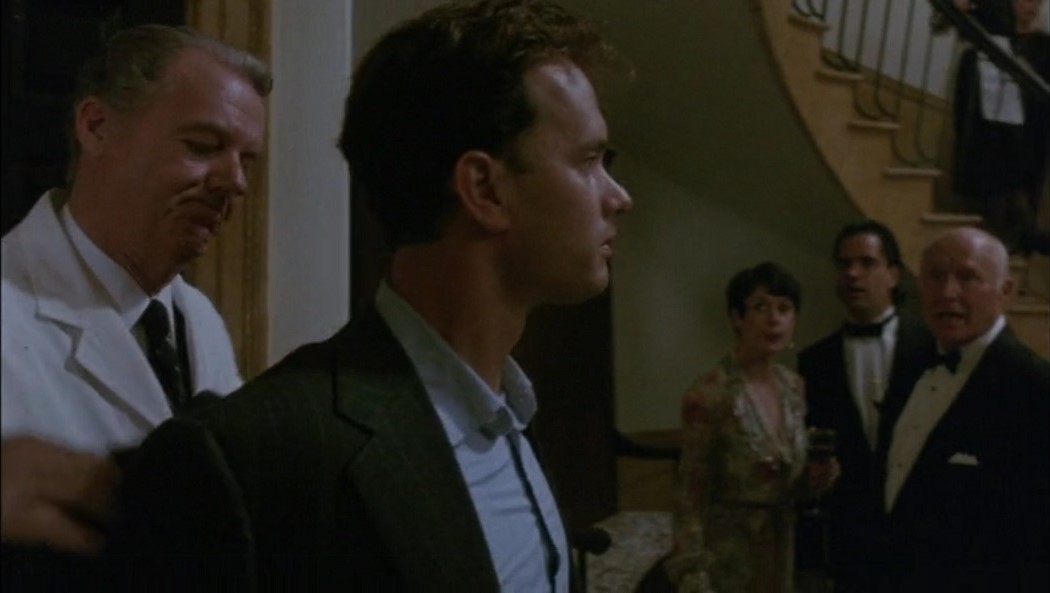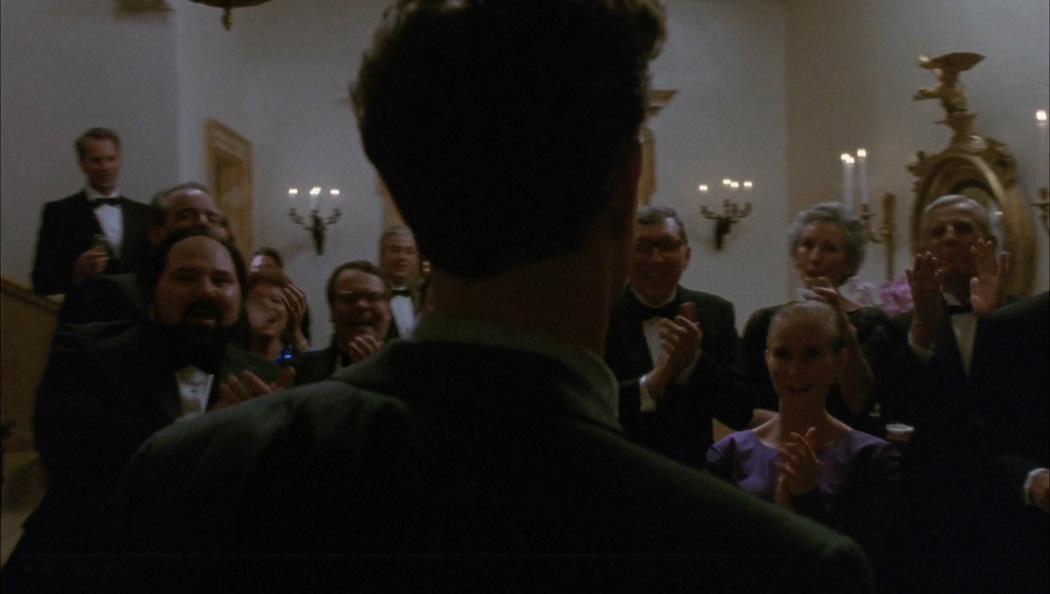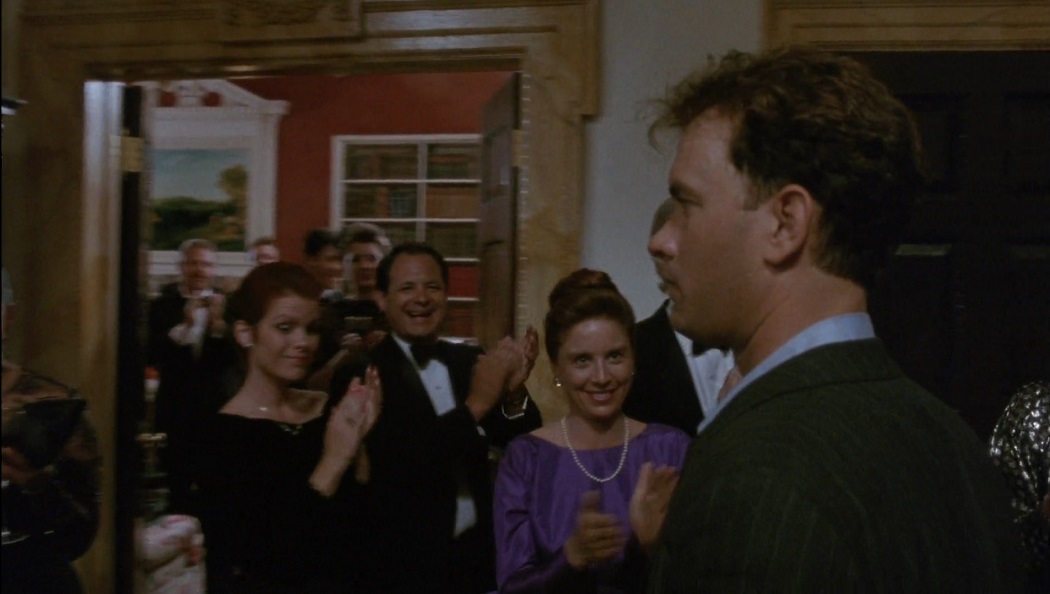"HAS ENOUGH TIME PASSED" THAT DE PALMA'S FILM "CAN BE JUDGED ON ITS OWN MERITS?"

Earlier this week, Wonders In The Dark posted an article by J.D. Lafrance, which takes a fresh look at Brian De Palma's film adaptation of Tom Wolfe's The Bonfire of the Vanities. It turns out this is a slightly updated repost from J.D.'s own blog, Radiator Heaven, where the article was posted three years ago. We missed it then, but glad to see it now.
Lafrance opens with a quote from De Palma, speaking to EMPIRE magazine in its December 2008 issue: "And I think if you look at the movie now, and you don’t know anything about the book, and you get it out of the time that it was released, I think you can see it in a whole different way."
Lafrance goes on to suggest that taking a fresh look at the film, having never read the source material, might be "a good thing as it allows the film to be judged on its own merits." Here's an excerpt from his findings:
The main problem the film has is the miscasting of [Tom] Hanks as a ruthless Wall Street trader. The actor can do many things but ruthless and unlikable is not among them. Even in his darkest roles – Punchline (1988) and The Road to Perdition (2002) – there is always an inherent empathy. He can’t help it as it is in his DNA. This goes against the character of Sherman McCoy who is supposed to be an unpleasant son-of-a-bitch and the casting of Hanks was clearly a move to dilute the character and make him more relatable. What he does do well is sweaty desperation when the cops come calling and casually grill Sherman.Morgan Freeman kills it as a tough-talking, no-nonsense judge in the South Bronx who schools a naïve assistant district attorney (Saul Rubinek) on how things work in his court via a fiery and masterful monologue – the kind that Samuel L. Jackson usually gets in Quentin Tarantino films – that is a sight to behold and makes me wish the veteran actor would get juicy roles like this again. This is merely a warm-up for the film’s climax where it goes all Frank Capra as Freeman delivers a powerful speech condemning all the parties involved, calling for decency as the judge represents the lone voice of reason.
At the time of The Bonfire of the Vanities, Bruce Willis was at the height of his Die Hard (1988) / The Return of Bruno smarmy charm phase and this role lets him lay it on thick while also showing his willingness to play a deeply flawed character in search of redemption. He’s also not afraid to play up the less likable aspects of Fallow, the high society suck-up and the alcoholic lush.
The Bonfire of the Vanities works hard to make Sherman sympathetic when it should be roasting him. He embodies entitled white privilege, which was big during the materialistic 1980s and is making a comeback with Donald Trump as President of the United States. In one scene, De Palma makes a point of juxtaposing the African American protestors outside Sherman’s apartment building with the dinner party inside populated by his white rich friends as they metaphorically circle the wagons and show support for one of their own. These people are portrayed as arrogant racists that don’t care about anyone but themselves. If they get into any trouble they just make it go away with money.
The film also exposes the hypocrisy of the justice system. The D.A. doesn’t want to punish Sherman because he’s guilty but because it will help him get re-elected. He’s an opportunist that sends out his minions to do his bidding. Then there is the media that are portrayed as a mob of vultures feeding on the latest story of misery, adhering to the ago old credo, if it bleeds, it leads. Sherman is just the latest headline to sell papers – nothing more, nothing less. If Freeman’s climactic Capraeseque monologue seems too gee whiz of an idealistic ending, De Palma ends things with a brilliant visual punchline that hints at how great the film could have been if the studio hadn’t messed with him behind the scenes.
The Bonfire of the Vanities is a cynical take on modern society with everybody available for a price, from the D.A. vying for re-election to the mother (Mary Alice) of the young man in a coma suing the hospital for $10 million. Divorced from its source material, De Palma’s film is a biting satire that attacks the rich, those that exploit tragedies, and the media. At times, it is also a light farce and, as a result, the film is all over the place tonally as it can’t make up its mind what it wants to be. Yet, for all this sloppiness and the miscasting of Hanks (who actually does get better as the film goes along), Bonfire is not the complete disaster it is commonly portrayed as and is actually quite entertaining. It deserves to be re-visited and regarded on its own merits.


Updated: Saturday, April 25, 2020 8:39 AM CDT
Post Comment | View Comments (3) | Permalink | Share This Post



